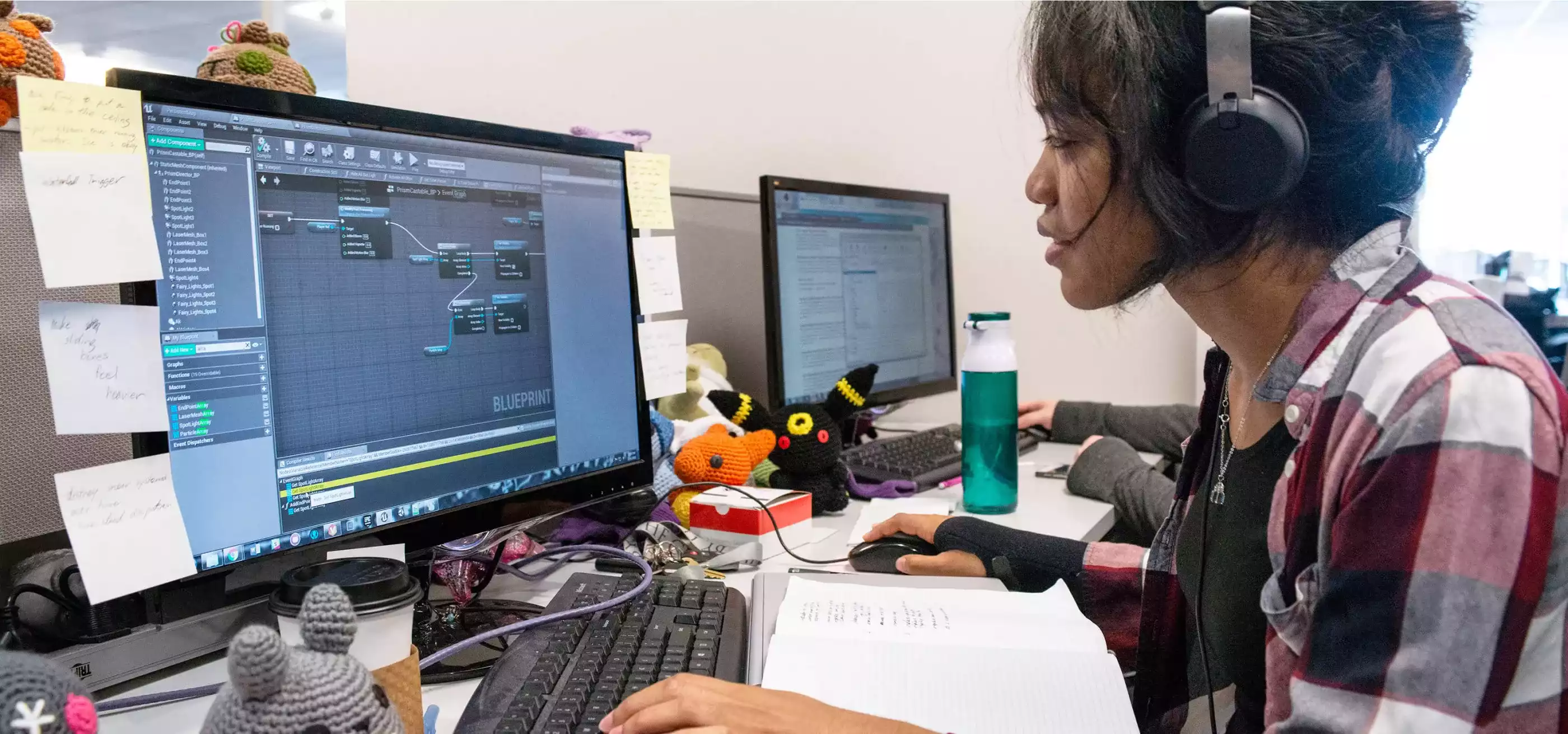If you’re a high schooler dreaming of life as a Dragon and making video games, you might be wondering how best to prepare yourself for the challenges and opportunities that await you at DigiPen. Luckily, there are a number of things you can do before graduating high school to set yourself up for success!
If you’re interested in our game design degree programs, below you’ll find a few handy tips from us, as well as some words of wisdom from DigiPen game design alumni on how to get started creating games.
To prepare for DigiPen’s four-year game degrees such as the Bachelor of Arts in Game Design or the Bachelor of Science in Computer Science and Game Design, you should:
- Start writing down game design concepts and ideas now! You don’t need to wait until you’re enrolled at DigiPen to start designing games. Keep a journal where you can write down your own video game mechanics and traditional game design concepts, no matter how rough they are. You can also hone your eye as a designer by critically engaging games you’re currently playing, isolating and writing down the elements that make them fun, unique, or frustrating.
- Don’t just play games — create them. Take some of the ideas from your journal and turn them into reality, whether it’s by making a physical board game or card game, or tinkering around with free or inexpensive game maker programs. Play them with friends or family and gather feedback on how you could refine your creations further.
- Play different kinds of games. If you’re hoping to become a game designer, but you’ve only ever played first-person shooters, you won’t have a lot to draw on once you’re in the designer’s seat yourself. Playing a wide variety of video games and traditional games, both contemporary and classic, will not only provide you with a wealth of reference material — it will also deepen your understanding of what makes good game design. Every gameplay experience has something to teach you.
- Get involved with DigiPen’s high school programs. DigiPen Academy offers college-preparatory academic programs for high-schoolers through our online Pre-College courses every summer and our full-year WANIC Skills Center programs. Open World, DigiPen’s K-12 program, is another great option for high schoolers looking to join game design workshops in the summer. Joining these communities will not only solidify your passion and deepen your knowledge in game design, but it’ll also look great on college applications.
Play a lot of games and keep an open mind. Really good designs come from blending other designs. Also, get used to programming. Don’t be afraid of it. Just understanding the logic behind a lot of scripting is really important. [You can work with] programs as simple as Game Maker or RPG Maker just to get a handle on programming logic. Don’t say, ‘But I’m not a programmer!’ Your first job as a designer is to make a prototype of your game for your team so they can see what you’re talking about. Even if you’re having a programmer help you make the game, that’s fine — you still need to understand the logic to be able to explain it to the programmer. Finally, let go of any big ego if you have it! You’re going to fail a lot, but you have to fail a lot to succeed.”
David Robson
BA in Game Design
Before coming to DigiPen, I would just recommend experimenting with game making. Open any engine — Unity, Unreal, or anything. Make something and then show it to people. Be kind to yourself as you do this. The little things you make might not initially match up with your expectations, so remember to be proud of any progress you make, any neat new thing. The sooner you go about it, the better prepared you’ll be.”
Stav Hinenzon
BS in Computer Science and Game Design
